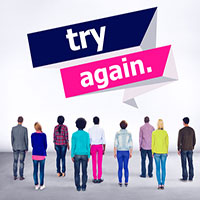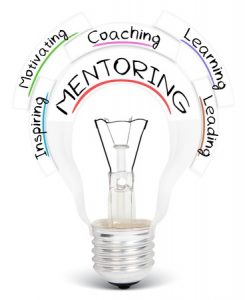Business Mentoring Programs Can Do More Than Just Social Learning
 Ahhh, social learning: One of the top buzzwords in corporate learning circles over the last several years. Now that many of us have played around with social learning for a few years, we’re starting to have some better understandings about the practice come into focus. One of the biggest takeaways is that employees won’t rush to adopt social learning the way that they rushed to adopt social networking in their personal lives. That’s not to say that nobody is engaging the practice, but I think it’s safe to say that participation in many organizational social learning programs has fallen woefully short of hopes and expectations.
Ahhh, social learning: One of the top buzzwords in corporate learning circles over the last several years. Now that many of us have played around with social learning for a few years, we’re starting to have some better understandings about the practice come into focus. One of the biggest takeaways is that employees won’t rush to adopt social learning the way that they rushed to adopt social networking in their personal lives. That’s not to say that nobody is engaging the practice, but I think it’s safe to say that participation in many organizational social learning programs has fallen woefully short of hopes and expectations.
Why? Well, one reason is that we are all busy in our jobs. We constantly need to prioritize and re-prioritize how we spend our available work hours. And what do we spend our time on? Work (aka, those things we need to do or produce to show the boss that we are doing what we are paid to do). Typically, we will prioritize activities that have high levels of accountability or that result in tangible rewards. In most cases, social learning meets neither prioritization criteria, making it an activity that most will get to if they have extra time (which most of us don’t have).
Some have also asked the question, “Well, why didn’t people flock to social learning the way they did to social networking?” In my estimation, it’s a fairly simple answer: Social networking is for personal/fun purposes (although arguments can certainly be made that it’s not as fun as it used to be given the current political climate). Social learning, at the end of the day, is still more closely aligned with work (i.e., not fun). I’m not suggesting that learning at work can’t be fun, just that the general “category” that people will align social learning with is that of work and not personal/fun time.
So, let’s get back to why organizations wanted social learning in the first place. At the core, there was the hope that by making it easy for coworkers to connect with one another as they learn (and not just engage with content), learning would occur through collaboration. It was believed that those with more experience and expertise would help to teach those with less.
The idea of connecting people so that they can learn from one another is still a great idea that carries profound merit. The difference is in how to do it. We’ve seen the shortfalls of social learning, but there is a solution. The answer is a tried and true practice: mentoring.
 At its core, mentoring is learning through the experience of others, which was the hope for social learning. The difference is that mentoring tends to bring with it more formality and structure than social learning. When done properly, it is integrated with organizational programs (e.g., Leadership Development, Onboarding, New Manager Training, High Potential Programs, D&I/ERG initiatives), which typically go a long way to adding a core component that was missing from social learning initiatives: accountability.
At its core, mentoring is learning through the experience of others, which was the hope for social learning. The difference is that mentoring tends to bring with it more formality and structure than social learning. When done properly, it is integrated with organizational programs (e.g., Leadership Development, Onboarding, New Manager Training, High Potential Programs, D&I/ERG initiatives), which typically go a long way to adding a core component that was missing from social learning initiatives: accountability.
We ourselves were wooed by the ideas behind social learning, but found out over the course of several years (and several tough lessons learned) that social learning does not live up to the hype. My intent is not to place blame on those who took a stab at social learning, since we ourselves did the same. The drive to want social learning to work is a good one; we simply learned what will and won’t work in organizations, and this has solidified our position that mentoring is what works for organizational learning.
So, if you’re fed up with social learning not providing the results you had hoped, just tweak your thinking a bit. Give mentoring a chance. Or, in some cases, look to expand how you are currently using mentoring so that it can have a larger impact throughout the organization.
Contact us to learn more about how to transition your focus on social learning to one that is more centered on mentoring. We’d be happy to share with you the lessons we’ve learned over the years so that you can achieve outstanding results.








